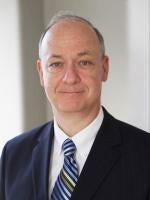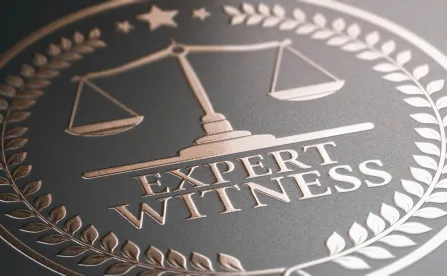Amended Federal Rule of Evidence 702, which sets forth the standard for evaluating the admissibility of expert evidence, took effect on December 1, 2023. However, as a practical matter, it has been in effect for months as numerous courts have already cited to these revised provisions in evaluating expert witnesses and their proposed testimony. These cases, decided before the “new” Rule 702 formally took effect, highlight the importance of the revisions. They also reflect the intention of the Advisory Committee to reemphasize the role that courts have had all along: to serve as gatekeepers when it comes to evaluating the admissibility of expert testimony.
Amended Rule 702 and its significance
The recent amendment to Rule 702 added the language italicized below:
A witness who is qualified as an expert by knowledge, skill, experience, training or education may testify in the form of an opinion or otherwise if the proponent demonstrates to the court that it is more likely than not that:
(a) the expert’s scientific, technical or other specialized knowledge will help the trier of fact to understand the evidence or to determine a fact in issue;
(b) the testimony is based on sufficient facts or data;
(c) the testimony is the product of reliable principles and methods; and
(d) the expert’s opinion reflects a reliable application of the principles and methods to the facts of the case.
Fed. R. Evid. 702 (emphasis added).
These changes may seem small but they are significant. They make clear that the proponent of expert evidence bears the burden of proof to show that the expert is appropriately qualified and used proper methodology in arriving at his or her opinions “by a preponderance of the evidence.” As the Advisory Committee’s note explains, the revisions “emphasize that each expert opinion must stay within the bounds of what can be concluded from a reliable application of the expert’s basis and methodology.” 1
In sum, the changes highlight courts’ “gatekeeping” function in assessing whether the expert has satisfied the three reliability-based requirements -- subparagraphs (a), (b) and (c) -- and “whether the conclusions of an expert go beyond what the expert’s basis and methodology may reliably support.”2
Cases citing the anticipated changes
Unsurprisingly, courts took advantage of the pending amendments before they became the law of the land on December 1 of this year. Some explicitly relied on the concluding comments to the amendments by the Advisory Committee:
Nothing in the amendment imposes any new, specific procedures. Rather, the amendment is simply intended to clarify that Rule 104(a)’s requirement [that courts must decide preliminary questions about the admissibility of a witness] applies to expert opinions under Rule 702. Similarly, nothing in the amendment requires the court to nitpick an expert’s opinion in order to reach a perfect expression of what the basis and methodology can support. The Rule 104(a) standard does not require perfection. On the other hand, it does not permit the expert to make claims that are unsupported by the expert’s basis and methodology. 3
These courts recognized that their gatekeeping function demands a preliminary assessment of the expert and his or her opinions before allowing expert testimony before a jury. There are a number of examples of courts that, early on, understood the importance of the amendments:
- August 2021: Perhaps the earliest application of the not-yet-approved amended Rule 702, came in Sardis v. Overhead Door Corporation. Just a few months after the publication of the Advisory Committee’s notes, that court held: “Consistent with . . . existing law––and in accordance with the Committee’s pending rule––we confirm once again the indispensable nature of district courts’ Rule 702 gatekeeping function in all cases in which expert testimony is challenged on relevance and/or reliability grounds.” 4
- January 2023: In In re Anderson, a bankruptcy judge evaluated the admissibility of a consulting economist under Rule 702, writing:
It has come to the Court’s attention that there are newly proposed amendments to Rule 702 set to go into effect December 1, 2023, provided they pass review by the Judicial Conference, are approved by the Supreme Court, and are not disapproved by Congress. Though not yet in effect, Rule 702 in its newest form and the associated Committee notes may be relied upon and cited to as persuasive authority “‘because, as the Committee explains, they are “simply intended to clarify” how Rule 702 should have been applied all along.’” 5
- February 2023: In Beaty v. Ford Motor Company, reference to the then-pending amendments to Rule 702 received passing mention in a footnote: “During oral argument, defendant’s attorney referenced proposed amendments to Rule 702, which might take effect in December of 2023, but they are not yet in force, and the Court considers them only to the extent that they are consistent with current case law.”6 Nonetheless, the court clearly understood that the amendments were a clarification of already-existing requirements that courts take the gatekeeping role seriously.
- November 2023: In Estate of McCoy v. City of Milwaukee, the court made clear that the burden of proof lay with the proponent of the expert, that the standard was “by a preponderance of the evidence,” and acknowledged the important gatekeeping role of the court in assessing the expert’s opinion.7 The court had a robust discussion of the amendments to Rule 702 in a footnote in which it made clear that, even in the absence of opposition to the admission of an expert by the adverse party, “the Court has an independent obligation to screen proffered experts and ensure they pass Rule 702’s threshold.”8
- November 2023: Even in a criminal case, the obligation of the court to scrutinize proposed expert testimony still exists. In U.S. v. Briscoe, the court made clear that the amendments to Rule 702 no longer permitted courts to operate on the presumption that expert testimony was admissible, but rather that “‘judicial gatekeeping is essential.’”9
Not all litigants who referenced the amended rule before it took effect were successful in persuading the court. In Velazquez v. State Farm, 10 the defendant lost its original motion to exclude. It then moved the district court for reconsideration, based on the “[A]dvisory [C]ommittee note corresponding to the proposed amendments to Rule 702.” The court pushed back, finding the defendant’s reliance on the Advisory Committee note was “misplaced for various reasons.” First, the court noted that the amendments had not yet gone into effect. Second, the court rejected the argument that its decision was inconsistent with the new version of Rule 702, ruling that its previous order employed a “preponderance of the evidence” standard. Lastly, the court noted that the rule itself, not the Advisory Committee note, controls.
Although they only recently became law, the amendments to Rule 702 have already had a significant impact on the way judges view their obligations to carefully scrutinize expert testimony. Courts should no longer credit the refrain from some attorneys that questions regarding an expert’s reliability or methodology go to “the weight of the evidence.”11 Nor should they rely on a purported “presumption” of admissibility to allow an expert’s testimony to come before a jury. Instead, courts now have clarity that Rule 702 requires a searching analysis and real gatekeeping on the part of the judge before expert testimony is permitted in the courtroom.
What is still an open question is whether parties will have an opportunity to seek reconsideration of Daubert motions rejected before December 1, 2023. Judge Alejandro, in the Velazquez case cited above, provided a roadmap for judges to show, after the fact, that their decision was compatible with the requirements of the new Rule 702. However, for those cases where an order affirmatively indicated that the court was throwing up its hands and leaving the gatekeeping job to the jury based on a “presumption ‘that expert testimony is admissible’”12 or a “weight of the evidence” approach, a motion for reconsideration may be feasible.
1 Fed. R. Evid. 702 Advisory Committee’s note to 2023 amendment.
2 Id.
3 Id. (emphasis added).
4 Sardis v. Overhead Door Corp., 10 F.4th 268, 284 (4th Cir. 2021).
5 In re Anderson, No. 15-21681, 131 A.F.T.R.2d 2023-783, 2023 WL 2229355, at *3 (Bankr. W.D. Tenn. Jan. 20, 2023) (citation omitted).
6 Beaty v. Ford Motor Co., No. C17-5201, 2023 WL 1879534, at *1 n.1 (W.D. Wash. Feb. 10, 2023).
7 Est. of McCoy v. City of Milwaukee, No. 22-CV-320, 2023 WL 7386237, at *2 (E.D. Wis. Nov. 8, 2023).
8 Id. at *2 n.3.
9 United States v. Briscoe, No. 20-CR-1777, 2023 WL 8096886, at *4 (D.N.M. Nov. 21, 2023) (citations omitted).
10 Velazquez v. State Farm Fire & Cas. Co., No. 19-cv-3128, at 2 n.1 (E.D. Pa. Oct. 23, 2023) (order denying reconsideration).
11 Fed. R. Evid. 702 Advisory Committee’s note to 2023 amendment.
12 Briscoe, 2023 WL 8096886, at *4 (citation omitted).






 />i
/>i

